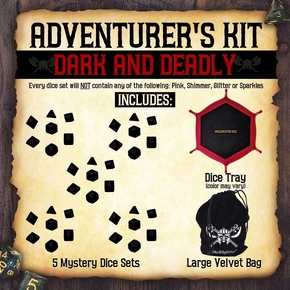
Pathfinder Society
Table of Contents:

Image Copyright of Paizo.com
Blaze a Trail to Your Local Comic Shop
You’ve delved deep, gone through multiple pathfinder books, and you’ve finally found the perfect combination of feats and features. Your new character is the pinnacle of character creation, but well… You actually need a group to play it with. Getting together a group of friends to play a tabletop roleplaying game isn’t all that easy. Sometimes the schedules just don’t line up, or maybe despite your best efforts, your friends just aren’t that interested in rolling up characters. For pathfinder players, this is where “The Pathfinder Society” steps in, an official organization run by Paizo with leagues across the world. How do you join these hallowed games? Grab your sheets and your rulebooks and follow us as we go through everything you need to know.
So, What’s Pathfinder Society?
Paizo set up “The Pathfinder Society” as a way to bring people into the game and give them easy access to gameplay. Many comic shops have a weekly Pathfinder Society night in which players can progress through the season’s new adventures and advance their characters. Anybody can show up to play, and you can even show up to run a game as a GM. You’re not allowed to run through your own homebrew adventures though, instead each Pathfinder Society has their own sanctioned adventures that are played globally as the seasons progress. Most of the time these events are free to play, but sometimes there will be a small charge by the store or event coordinators to cover costs.
How is it Different from Regular Pathfinder?
To start with, I need to loudly proclaim “It is Pathfinder 2nd Edition”. Paizo is attempting to fully replace 1st edition pathfinder with the new game, and Pathfinder Society is no exception. Sadly, that means there’s no real way to play society games from the old edition, but time marches on.
So, assuming you’re used to 2nd edition pathfinder, playing in the pathfinder society is largely the same as your normal games but with a few key differences. Pathfinder society doesn’t have set groups, it’s designed to accommodate players dropping in or out from week to week. The game doesn’t get disrupted if a player can’t make it one week, someone else at the event can simply take their seat. This whole arrangement is something of a double-edged sword though. It’s great to work around people’s schedules, and not require regular commitments, but you don’t get the same sense of a “group” that you’d get from regular games. You never know what players you’ll be gaming with from week to week. It also makes it difficult to do any real role playing. You can get characterization and quips in, but most worthwhile plots and character development takes multiple sessions together to pull off.
The second big change is more of a playstyle change than anything to do with the actual rules. Role playing really does take a back seat to the game part of the roleplaying game. Pathfinder lends itself to character optimization and min-maxing already, Pathfinder Society takes it to the extreme. Players in the Pathfinder Society usually have quite a bit of experience combing through the source books for advantages and builds. Coming to the game with a pre generated character or something non-optimized will likely leave you feeling underpowered.
Should You Play in the Pathfinder Society?
This is a flavor to taste sort of situation, but I can’t recommend it if you have an opportunity to play with a regular play group. Pathfinder is already rather rules heavy in general, and the society encourages rules-lawyer play and strictly optimized builds. It’s a very competitive and game focused way to play a roleplaying game. With that being said, if that sort of tactical and strategy-centric gameplay appeals to you then the Pathfinder Society can be an ideal gaming outlet for you!
For me, Pathfinder Society works best as a kind of “meet and greet” for playing pathfinder. It will already contain a ton of players looking to get a pathfinder game together, and many lifelong groups have been formed by friends newly found at Pathfinder Society events. Often groups can just click during a Pathfinder Society adventure and simply keep on playing together.
How do I Join the Pathfinder Society?
Step 1 is finding a society group near you, which takes surprisingly more work than I’d have thought. Paizo doesn’t have a great group locator so tracking one down is a bit of a trick. Your best bet is to simply search around your local comic shops and check their event listings. Or strangely enough, you can try contacting your region’s event coordinator from a list you can find right here.
Step 2 will be creating a Paizo account, which is a fairly standard signup situation. Simply head to their website and go through the signup process.
Step 3 is to create a character according to the Pathfinder Society guidelines, the minutiae of which we’ll get into in just a moment.
Step 4 is to register your newly created character into their somewhat antiquated system. You’ll need to input all of your character options and submit it to the society.
Finally, with your completed and registered character, you’ll just need to arrive at the next event!
Making a Character Pathfinder Society Legal
Paizo has a character submission process which means you’re held to some high scrutiny for your character build. A lot of their official steps are just the standard character creation steps, but the legalese of the unique changes are a bit hard to parse out so we’ll boil the complex stuff down.
- Ability Scores
“Generate your Pathfinder Society character’s ability scores using the method detailed under “ABILITY SCORE OVERVIEW” on page 20 of the Core Rulebook. Your character may also take two additional ability flaws to gain one additional ability boost as described in the Voluntary Flaws sidebar on page 26 of the Core Rulebook.”
- Starting Wealth and Equipment
Everybody gets 15 gold pieces to spend on some extra starting gear. The purchasing rules are dense, but essentially, unless the situation is really weird, you’ll have access to all the gear in the Core Rulebook, starting on page 289.
- Alignment
Very simply, no evil characters. They really don’t want party infighting and the adventures tend to assume good or at least good-ish intentions from the party.
- Age
Every character must be at least a young adult. Age has some weird modifiers for pathfinder, but beyond that many of the horrors a pathfinder character goes through become decidedly darker when they happen to kids.
- You Need a Miniature
Pathfinder is a lot more tactical than D&D, and they’re not big fans of the theatre of the mind. Pathfinder society requires that you get a miniature to represent your character, though it’s pretty vague what constitutes a “miniature”. Pathfinder uses 1-inch square grids, so you can use pretty much anything that’ll fit in a 1-inch square. It’s fairly clear that they want you to buy a proper mini, but you can use whatever you have.
- Pathfinder Training
Everybody starts with 3 “networking points” that they can choose to invest between the 3 “schools” of Spells, Scrolls, or Swords. This has flavor implications, but your choice of school largely just dictates what consumable magic items you get at the start of each adventure. You can find this list of items right here.
- Factions
Finally, every character needs to choose a faction. This choice is largely for character and fluff purposes, but there will be situations from time to time that can be influenced by your choice of faction. Sometimes you’ll gain access to loot or side-quests, or sometimes you may face challenges that specifically target your creed. It’s also mainly to form some arbitrary “solidarity” between you and the other players who picked your faction.
The factions are pretty fluffy, so I’ll include their full descriptions:
Major Factions
Envoy’s Alliance: Being a Pathfinder is dangerous work. Travel comes with its own dangers, traps seem to be everywhere, and just about everything seems ready to kill aspiring Pathfinder agents. Envoys’ Alliance aims to bolster the Society’s ranks and represent its members, making the Society ever stronger, better trained and better supported.
Grand Archive: Archaeology is a destructive science, and adventurers tend to be more destructive than most. If the Society is to uphold its mandate to study and preserve the past, then documentation and academic rigor are key. Yet members of the Grand Archive do not limit themselves to Absalom’s libraries; these bold explorers voyage to the most exciting sites to chronicle the past and share what they learn with the world.
Horizon Hunters: The Horizon Hunters faction is home to those who carry on the proud tradition of ascending the highest peaks, plumbing the darkest depths, and seeing what lies over the next hill. And as sweet as it is to discover a lost ruin or unknown vista, it’s all the better to tell wild tales about the experience and revel in the admiration of peers—particularly if your deeds are immortalized in the Pathfinder Chronicles, a widely distributed record of the greatest Pathfinders’ achievements and discoveries.
Vigilant Seal: While the Pathfinder Society’s motto is “Explore, Report, Cooperate”, members of the Vigilant Seal have their own three-part motto: “Protect, Contain, Destroy.” Members of the Vigilant Seal seek to ensure that ancient evils uncovered during their expeditions are properly dealt with—they protect ancient sites, contain possible threats, and destroy dangerous evils that can’t be safely contained.
Minor Factions
Radiant Oath: Pathfinders have a track record for thwarting evil, lending a helping hand, and presenting the Pathfinders as upstanding folk wherever they go. For the Radiant Oath, this benevolence extends beyond incidental assistance. Instead, the faction sees the Society’s broad reach as an excellent vector for assisting others the world over. Those who join the Radiant Oath swear simple vows to assist others, expanding on these promises the more they serve the faction.
Verdant Wheel: Nature enthusiasts of all stripes—from grizzled trackers to bright-eyed ecologists to tenacious druids—gravitate to the Society for opportunities to witness natural wonders, catalog new species, and better protect the world’s pristine realms. The Verdant Wheel has a particular fondness for sensing patterns and cycles, such as that of creation and destruction, as exemplified by new growth sprouting from a fire-ravaged field. Yet even those intent on preserving that which exists can find a welcome home here.
- Pick Your Art!
Once all your ducks are in a row, you get to pick a portrait from Paizo’s massive library! Your name, picture, and faction will all be registered with “Organized Play”, and you can take your character to any Pathfinder Society event across the globe!
--
Enjoy this Guide? You May Also Like:
Need a New Dice Set? Check out our DND Dice here.They are perfect for every gamer as a gift or just treating yourself!
Thinking about other classes? Check out our giant list of D&D 5e Tools and Tips here.
New to find a D&D Group? Check out our guide on How to Find a D&D Group.
- ce may include affiliate links to Amazon and its affiliate sites on which the owner of this Service, Blueshift Nine, LLC, will make a referral commission.

Disclaimer
Last updated: January 27, 2019
The information contained on www.SkullSplitterDice.com website (the "Service") is for general information purposes only.
www.SkullSplitterDice.com is a participant in the Amazon Services LLC Associates Program, an affiliate advertising program designed to provide a means for sites to earn advertising fees by advertising and linking to Amazon.com. (source: Section 5)
Blueshift Nine, LLC assumes no responsibility for errors or omissions in the contents on the Service.
In no event shall Blueshift Nine, LLC be liable for any special, direct, indirect, consequential, or incidental damages or any damages whatsoever, whether in an action of contract, negligence or other tort, arising out of or in connection with the use of the Service or the contents of the Service. Blueshift Nine, LLC reserves the right to make additions, deletions, or modification to the contents on the Service at any time without prior notice.
Blueshift Nine, LLC does not warrant that the Service is free of viruses or other harmful components.
Affiliate disclaimer
This affiliate disclosure details the affiliate relationships of Blueshift Nine, LLC with other companies and products.
Some of the links are "affiliate links", a link with a special tracking code. This means if you click on an affiliate link and purchase the item, we will receive an affiliate commission.
The price of the item is the same whether it is an affiliate link or not. Regardless, we only recommend products or services we believe will add value to our readers.
By using the affiliate links, you are helping support the Service, and we genuinely appreciate your support.
Affiliate advertising programs that the Service uses are:
- Amazon Services LLC Associates Program
- As an Amazon Associate, I earn from qualifying purchases.
- Blueshift Nine, LLC is a participant in the Amazon Services LLC Associates Program, an affiliate advertising program designed to provide a means for sites to earn advertising fees by advertising and linking to Amazon.com or endless.com, MYHABIT.com, SmallParts.com, or AmazonWireless.com.
- Pages on this Service may include affiliate links to Amazon and its affiliate sites on which the owner of this Service, Blueshift Nine, LLC, will make a referral commission.


